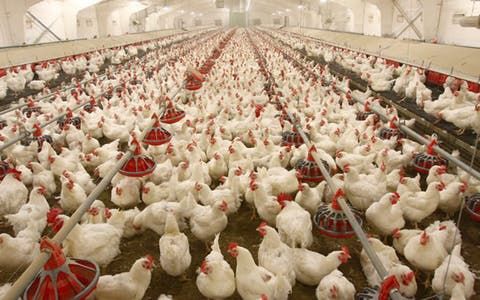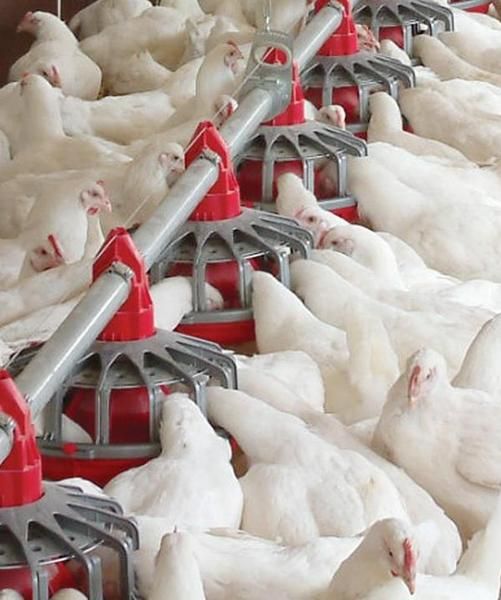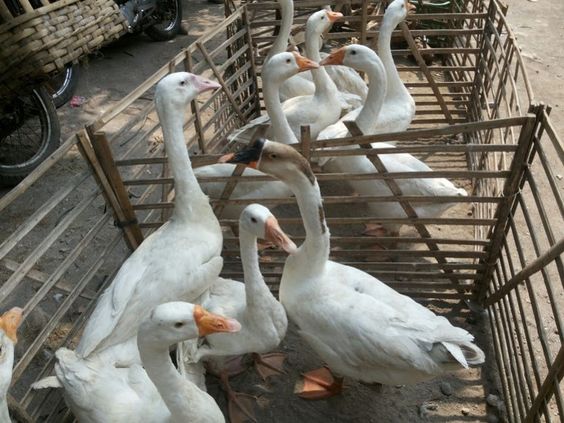Chicken Cultivation Business: A Comprehensive Guide
Chicken Cultivation Business, also known as poultry farming, is a sector dedicated to raising chickens for meat or egg production. It’s a global industry that provides a vital source of protein for human consumption. This guide delves into the various aspects of chicken cultivation, exploring its benefits, objectives, considerations, and potential for success.
Chickens offer a versatile and efficient way to produce animal protein. With a relatively short lifespan and high reproductive rate, they are well-suited for commercial farming. Chicken cultivation businesses can range in size and scale, from small backyard flocks to large-scale industrial operations. Regardless of size, all chicken cultivation businesses share the common goal of raising healthy chickens for a profitable return.
Benefits of Chicken Cultivation
There are numerous benefits associated with chicken cultivation:
- High Demand: Chicken is one of the most widely consumed meats globally, making it a reliable source of income.
- Relatively Short Production Cycle: Chickens reach maturity quickly compared to other livestock, allowing for faster turnaround and profit generation.
- Low Investment (Small Scale): Starting a small-scale chicken cultivation business requires minimal investment compared to other livestock ventures.
- Efficient Feed Conversion: Chickens are efficient at converting feed into protein, making them a cost-effective source of animal protein.
- Manure as Fertilizer: Chicken manure can be a valuable source of fertilizer for crops, promoting sustainable practices.
- Multiple Products: Chicken cultivation can generate multiple income streams – meat, eggs, and even feathers (for specific breeds).
Objectives of a Chicken Cultivation Business
The primary objectives of a chicken cultivation business can be summarized as follows:
- Profitability: Generate a sustainable income through the sale of chicken meat, eggs, or chicks (breeder farms).
- Productivity: Maximize the output of meat or eggs per chicken while maintaining quality and efficiency.
- Animal Welfare: Ensure the health and well-being of chickens through proper housing, nutrition, and veterinary care.
- Sustainability: Implement practices that minimize environmental impact and promote resource conservation.
Considerations for Starting a Chicken Cultivation Business
Before embarking on your chicken cultivation journey, it’s crucial to consider several factors:
- Market Research: Analyze the local market demand for chicken meat or eggs. Identify any existing gaps or niches you can fill.
- Business Plan: Develop a comprehensive business plan outlining your goals, strategies, financial projections, and marketing approach.
- Legal and Regulatory Requirements: Research and comply with all local and national regulations governing chicken farming in your area.
- Land and Facilities: Secure suitable land for your coop or chicken housing, ensuring it meets biosecurity standards and animal welfare considerations.
- Breed Selection: Choose a chicken breed that aligns with your production goals (meat or eggs) and thrives in your local climate.
- Feeding and Nutrition: Develop a balanced feeding program that provides chickens with the essential nutrients for optimal growth and egg production.
- Biosecurity: Implement biosecurity measures to minimize the risk of disease outbreaks in your flock.
- Marketing and Sales: Develop a strategy to market and sell your chicken products directly to consumers, restaurants, or grocery stores.
Types of Chicken Cultivation Businesses
Chicken cultivation businesses can be categorized based on their primary production focus:
- Meat Chicken Production (Broilers): Focuses on raising chickens for meat, typically slaughtered at a young age for optimal tenderness and flavor.
- Egg Production (Layers): Focuses on raising hens specifically for egg production. Layer breeds are bred to lay a high number of eggs over a set period.
- Breeder Farms: Specialize in breeding chickens for the purpose of selling chicks to other chicken farms.
- Free-Range/Pasture-Raised Chicken: Emphasize raising chickens with access to outdoor areas, catering to a market seeking ethically sourced and naturally raised chicken.
- Organic Chicken: Adhere to strict organic standards in terms of feed, housing, and overall management practices.
Ideas and Suggestions for Chicken Cultivation Business Success
- Diversification: Consider offering value-added products like pre-marinated chicken cuts or farm-fresh eggs with unique flavors.
- Direct Marketing: Explore establishing a farm stand or participating in farmer’s markets to connect directly with consumers.
- Technology Integration: Utilize technology like automated feeding systems or environmental control systems to improve efficiency and manage costs.
- Waste Management: Develop a plan for managing chicken manure effectively, potentially converting it into compost or fertilizer.
- Community Engagement: Connect with local communities, educate them about your farming practices, and build trust in your brand.
Disadvantages of Chicken Cultivation
While chicken cultivation offers numerous benefits, it also comes with certain challenges:
- Disease Susceptibility: Chickens are susceptible to various diseases that can spread rapidly through flocks, potentially causing significant losses. Maintaining biosecurity and vaccination programs are crucial.
- Fluctuations in Market Prices: The price of chicken meat and eggs can fluctuate based on market demand, feed costs, and other factors, impacting profitability.
- Labor Requirements: Even small-scale chicken cultivation requires daily care and maintenance, including feeding, cleaning coops, and collecting eggs. Larger operations necessitate dedicated staff for these tasks.
- Environmental Impact: Large-scale chicken farming can contribute to environmental concerns like water pollution from manure runoff and air pollution from ammonia emissions. Implementing sustainable practices is crucial.
- Animal Welfare Concerns: Intensive chicken farming practices can raise ethical concerns regarding animal welfare. Choosing breeds and management strategies that prioritize chicken health is essential.
Financial Considerations and Profitability
The profitability of a chicken cultivation business depends on various factors, including:
- Scale of Operation: Larger operations typically generate higher profits but require significant investment in infrastructure and labor.
- Production Focus: Meat production generally offers higher profit margins per bird compared to egg production. However, egg production can provide a more consistent income stream.
- Feed Costs: Feed represents a major expense in chicken cultivation. Implementing efficient feeding practices and exploring alternative feed sources can improve profitability.
- Mortality Rates: Maintaining low mortality rates is vital for financial success. Proper management practices and preventative healthcare measures are key.
- Market Prices: Selling your products at a competitive price while ensuring a healthy profit margin requires careful market research and negotiation with buyers.
Marketing and Sales Strategies
Developing an effective marketing and sales strategy is essential for success in the chicken cultivation business. Here are some key considerations:
- Target Market: Identify your ideal customer base – restaurants, grocery stores, or directly to consumers through farmers markets or online platforms.
- Product Differentiation: Highlight what makes your chickens unique – breed, production methods (organic, free-range), or unique flavor profiles.
- Branding and Packaging: Develop a strong brand identity and attractive packaging that resonates with your target market.
- Building Relationships: Establish relationships with local restaurants, grocery stores, or distributors to secure consistent sales channels.
- Direct Marketing: Explore direct marketing options like farm stands, farmers’ markets, or online sales for increased profits and customer connection.
Sustainability in Chicken Cultivation
Sustainable practices are becoming increasingly important in the chicken cultivation industry. Here’s how to integrate them:
- Manure Management: Develop a plan for manure composting or conversion into biofertilizer to reduce environmental impact and create a valuable resource.
- Renewable Energy: Explore options like solar power to reduce reliance on fossil fuels and minimize your farm’s carbon footprint.
- Water Conservation: Implement water-saving techniques like drip irrigation systems and rainwater harvesting to minimize water usage.
- Responsible Feed Sourcing: Choose feed suppliers who utilize sustainable practices and minimize environmental damage.
- Biosecurity Measures: Effective biosecurity practices not only protect your flock but also minimize the need for antibiotics, promoting a more sustainable approach.
The chicken cultivation business offers a rewarding opportunity for individuals seeking to enter the agricultural sector. By carefully considering the various factors discussed throughout this guide, you can develop a successful and sustainable chicken cultivation business that provides a valuable source of protein while contributing positively to your local community and the environment. Remember, continuous learning, adaptation, and a commitment to ethical practices are key ingredients for long-term success in this dynamic industry.






